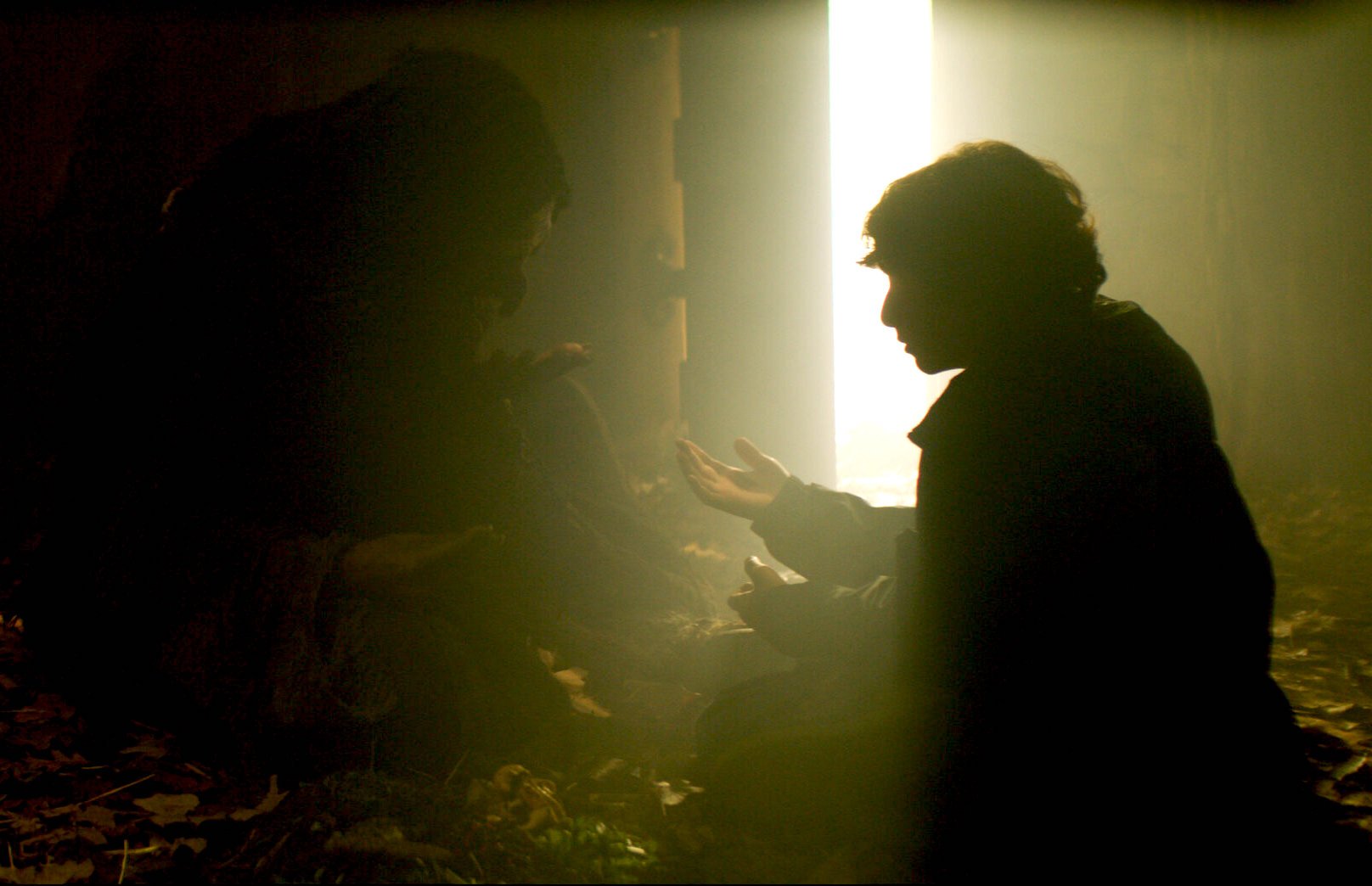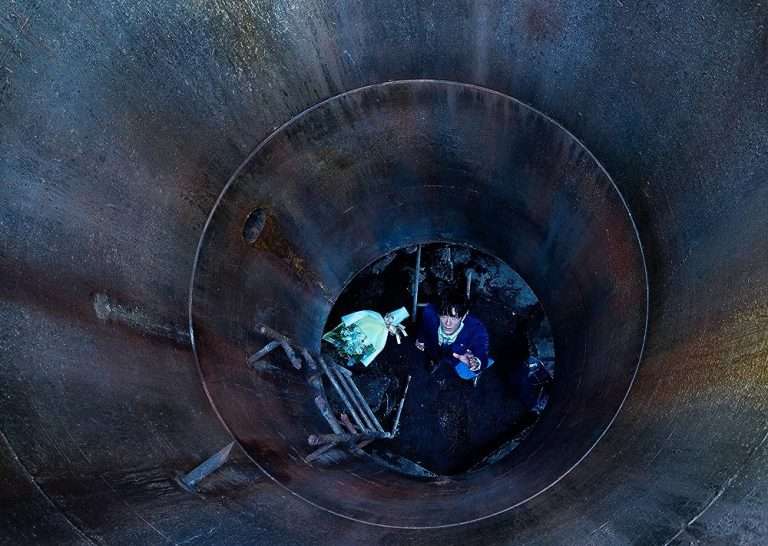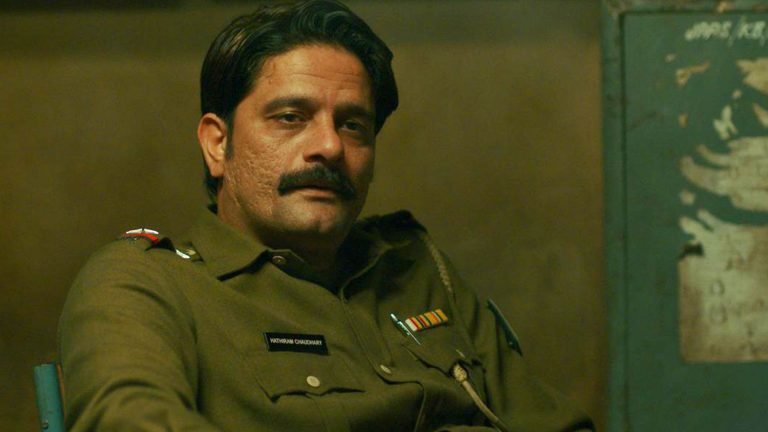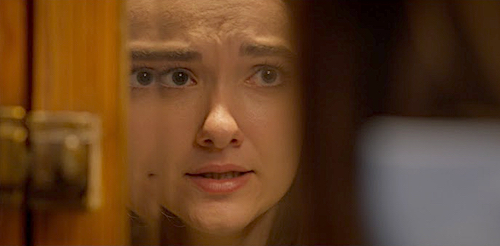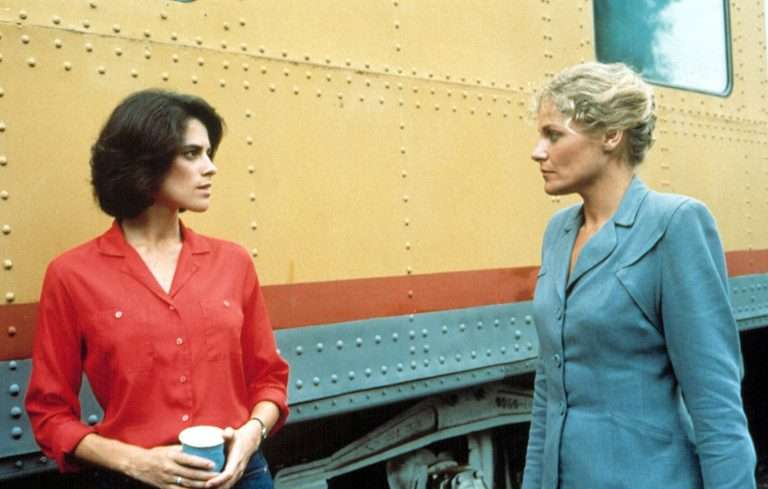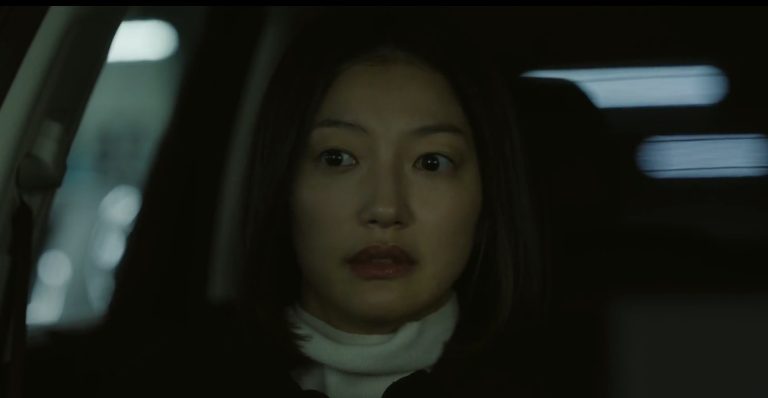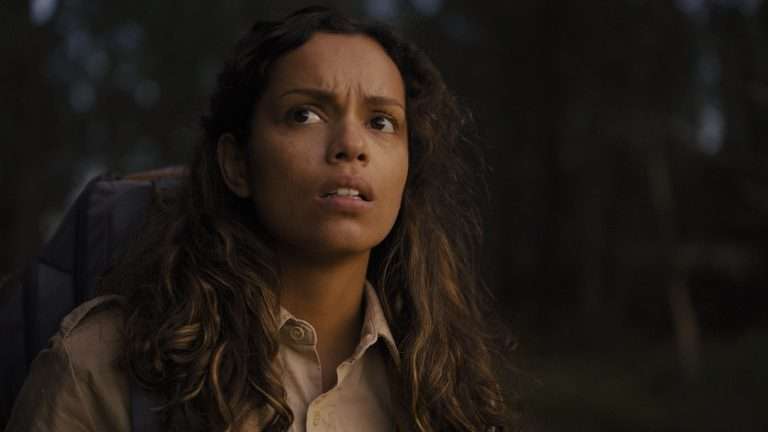Slapface (2021): Movie Ending, Explained: While we are more commonly familiar with the lousy outcomes of films that aren’t predetermined about what it wants to convey, sometimes being overtly preoccupied with the message sires a similar end-product. The Jeremiah Kipp-penned horror, Slapface (2021), has a strong, premeditated goal to achieve. It has vowed to interlace the scarring plights of bullying, toxic masculinity, grief, and abuse into an extraordinarily sharp tale of horror. But does the outcome do justice to the noble agenda? In some poignant instances, yes. Augusto Maturo and Mike C. Manning earnestly delineate two suddenly orphaned brothers drowning in the marshy saturation of loss and paddling to stay afloat with their personalized set of coping mechanisms.
In murky moments of its unafraid adventures, Slapface (2021) finds itself some gloomy truths to expose. And in those moments, the film achieves its wretched yet necessary purpose of making you take a look at the ghastly manifestation of trauma. If only Slapface had been more forthright and less ambiguous about the truth of its terror, the experience would have actually left an effect. But its jittery ending fails to raise the stakes with a feasible rationale. What we get is a half-hearted tale that is neither direct enough to penetrate your emotions nor absurd enough to leave a mark.
Slapface (2021): Plot Summary and Movie Synopsis
Tom and Lucas have had to fend for themselves ever since they lost their parents to a violent car crash. Attempting to provide for himself and his little brother with his blue-collar job, Tom has hardly had the time to stabilize his path in life, let alone the privilege of making the best of his youth. He avoids facing his emotions and parenting his brother by settling every disagreement with a game of “slapface.” And the game doesn’t go much different than what its name suggests, literally. They violently slap each other to release the tension of a dispute and get on with their days.
While Tom is unbothered by his conscious denial of just how bad it is for the two, sensitive Lucas is the face of the turbulence and doesn’t have a healthy outlet. He traipses through the secluded woods nearby and buries a picture of himself and his deceased mother with a blood offering in the sinister grounds of a local abandoned house. Tom prefers to gulp down his miseries with alcohol at the local bar, and he is usually interrupted by the friendly police officer warning him about Lucas’ bizarre adventures. Too many “get out of jail free cards” have been issued for them by the officer who was once close to their family, especially with their mother.
The Witch In The Woods
The opening credits of Slapface (2021) make space for Virago to make her ghastly way into the story. With a name that brings forth the formidable promises of mindless violence, Virago is the witch that haunts the ruins of a massive house in Lucas’ town. Hunted by a group of bullies that consists of two vicious twins and his love interest Moriah, Lucas is made to break into the house of the witch and bring back a souvenir. The dreary layers of decayed wallpapers and the moldy walls of a house long dead guide Lucas to the giant witch that lives within.
Virago swiftly grabs him into her frayed cloak, and he wakes up beside the shocked Moriah. Being promised that they can date as long as it is veiled from the world (but mostly the twin bullies), Lucas is sent home with a smile. The next day, for some unholy reason, he is back in the woods. This time around, being snatched by Virago doesn’t scare little Lucas like before, as they end up sharing a warm moment of watching the sunset together.
Violence, Inside and Out
Tom’s new girlfriend, Anna, is the only one to be seen being uncomfortable with the peculiar dynamic shared by the two brothers. She candidly addresses the abusive truths of Tom’s method of slapping his baby brother to set him straight. Hints of their dead father having a grander array of toxic masculinity and abusive tendencies that are now unfolding in Tom’s problematic instincts are first heard in the officer’s warning. Neither he nor Lucas appreciates the ways Tom is turning into a version of his ruthless father.
Though Tom is seen desperately grasping the last bits of tenderness that have not yet died, most of his vicious traits point toward the fact that he can’t help but become a bully to shield himself from the deafening screams of pain he feels. Growing up in a house where the solution to every problem has invariably been some form of aggression, Lucas is by now desensitized to violence. As we see him rabidly smashing up a massive rat, we witness the pragmatic manifestation of all the toxicity he has soaked in from his unhealthy surrounding. And we can’t really blame Moriah for dumping him after that.
Ghosts of brutality follow Lucas everywhere he goes. In the woods, he is terrorized by the sight of his violent new friend Virago ripping apart a dog that was chasing him. Seeing his bloodied state, Anna is concerned about what Lucas may be doing out in the gloomy woods alone. With her worries being dismissed by Tom and her finding a leaflet regarding the missing dog, Anna is progressively distressed about Lucas’ well-being.
Not knowing that Virago is paying an uninvited visit, Anna walks into the house looking for the brothers. She looks through Lucas’ room and grabs hold of Tom’s gun before she is startled by a noise. The vicious Virago eclipses Anna’s little frame before the perspective is altered, and we hear a gunshot and her dying screams. While his first humane instinct is to ask after the whereabouts of Anna, Lucas’ mind is soon taken over by the Virago’s ruinous games as they wreck the house together. All Tom still does upon walking into the devastation of his house is play another game of slapface and consider the matter closed.
Trauma Bonding
A nuanced understanding of toxic undercurrents of harmful relationships can’t be expected from someone of Lucas’ age, especially when problematic shows of love are all he has ever known. His lack of perspective regarding a healthy form of love makes Lucas susceptible to Virago’s monstrous affection. Their hauntingly silent, covert exchanges exude the energy of warmth that forlorn Lucas desperately seeks. She is repeatedly seen crossing her bounds and manipulating him into a closer, engulfing embrace. She steps into the bathtub and pours water over him with her decaying hands as we see frantic Lucas’ face change from apprehension to acceptance. Virago chooses to play fast and loose with Lucas’ tender emotions and sways around the house, holding her mother’s dress despite his tearful pleadings.
Normalizing such treatment isn’t surprising for a boy whose only remaining family handles him with pretty much the same manner of manipulation. Tom doesn’t mind turning his adolescent cheeks red with beatings from his coarse hands and justifying it with faulty excuses that Lucas is too young to see through. The very next moment, Tom holds him in a loving embrace and showers him with soothing words of togetherness. Lucas recognizes only love in his abusive brother, who he fiercely wants to protect from the wrath of Virago.
Slapface (2021): Ending Explained
Does Lucas imagine Virago?
Before I get into exploring the ending of Slapface (2021), which has generated a myriad of questions around it, there’s a significant problem with the writer’s intention that needs addressing. From the looks of the way the narrative cascades into its calculated last shot, the very evident object of the climax is to pin the blame for all the barbarity we have witnessed so far on Lucas. Virago is meant to be established as the imaginary medium of Lucas’ innate urge to cause pain as a frightening way of dealing with the pain that is buried within. So instead of delving into what the writer intended with the climax, I would rather talk about how it failed to have a rational expression justifying the same.
As we follow Lucas’ last devastating visit to the woods and find him discovering Anna’s corpse, we are reminded of the similar method of burial for the unfortunate dog. Landing on the path of Moriah accompanying the bullies, Lucas’ primary concern seems to be the danger they will face from his vicious protector. His attempts at saving them fizzle out as they continue to chase him despite one of the girl’s noses bleeding out due to a punch he placed on it. Their violent journey comes to a halt when Virago’s bone-chilling screams echo through the tepid trees. Lucas’ cries of agony are ignored by Virago, who bashes Moriah’s skull in with a rock. Trembling in overwhelming sorrow, Lucas howls for help that never comes.
Tom is told the gut-wrenching news when Lucas has already been taken into custody and is being questioned for the crimes. The devastation of the two brothers plays out parallelly as the universe’s cruel design makes them its hapless victims. Sitting in the hospital, Tom is made to hear the agonizing shrieks of Moriah’s grieving parents. Lucas, in the lock-up, is met with the apathetic disbelief of the cop who has heard about the lores surrounding Virago. Even up to this point, it can be argued that Lucas’ disturbed psyche made him hold an imaginary witch accountable for his grotesque actions. He could have understandably been the one to brutalize the dog, kill Anna, and even assault Moriah. If he is sociopathic enough to be capable of such unimaginable brutality, finding a trigger to commit said crimes would have come easily to his disordered mind.
What happens next, however, completely pulverizes the theory that incriminates Lucas. Blaring sirens of panicky fright make him walk out of the room he was being held in, and he walks into a gory corridor flecked with the mangled bodies of cops. Lucas enters the officer’s room to find him dead in his chair. The dark figure of Virago emerges from the gloomy corner of the room and follows him as he rushes home. The first thing Lucas does is call his brother and ask him to come home. The second thing is a depressing process of him desperately trying to find out the true nature of the witch.
Tom takes a death walk into the house only to be met with a fateful game of slapface with a being whose strength surpasses that of any living creature. Lucas shoots Virago with the gun and violently shoves a knife into her gut because his brother is dying an excruciating death. As Virago is lowered to the ground to die, Tom also takes his last breath on the floor.
With the police about to break into the house, the aching look on Lucas’ face tells a story of acceptance that he blames himself for his brother’s death. Even if I stretch the breadth of my receptivity wide enough to accept that it was Lucas who killed Tom as well, the police station massacre being his deed simply doesn’t add up. A child of that slight physique clearly can’t take on an entire station full of cops, let alone cause their grisly deaths. So if you ask me, Virago was very much a real, formidable entity, whether or not the writer meant for her to come off as that.

